Don't go to college, do these 5 things instead
College won't actually make you smarter, but these will.
In 2017, I packed my suitcase in California, hugged my parents goodbye, got on an airplane, and went to college across the country in New York.
I went to Vassar College, one of the "better" schools in the country. I thought they were going to teach me about how the world worked. But today, I believe that going to college was a complete waste of time and money.
My parents were paying $50,000 a year in tuition so I could go to Vassar and learn stuff. I spent 40 hours a week doing schoolwork, and I read books in my spare time and did odd jobs to pay my living expenses. Reflecting back on my experiences in college, I learned far more from the independent reading and from the odd jobs.
[You paid $50K a year for an education you could've gotten for the price of a library card.]
I've also learned considerably more over the last 4 years of my life traveling as a digital nomad than I did during my 4 years of college, even though my annual living expenses as a digital nomad are far lower than the tuition I paid in college.
Most really, really smart entrepreneurs agree with me. Elon Musk says that college is “mostly for fun”. And Peter Thiel even has a scholarship program that pays smart, ambitious young people to drop out of college so they can start companies.
I've written in previous articles about how college is just a caste system with window dressing. You need to be middle class to go to college, and you need to go to college to be middle class.
The deal you make when you go to college is that you pay a bunch of money in exchange for a piece of paper that unlocks middle class jobs. But they can't just outright say that they're selling tickets to the middle class, so they make you go through 4 years of hazing so they can pretend you're getting an "education".
In this article, I'll give you the summary of my argument for why college doesn't actually make you smarter. Then I'll give you my recommendations for what to do instead of/in addition to going to college based on what I found to be personally helpful in getting smarter.
Enjoy!
Why is college a bad deal?
There are 4 big problems with college. The first is that it's way too expensive, at least in America.
The second is that most universities have a left-wing bias, and many universities have an extreme left-wing bias. For example, when I went to Vassar, I was taught that all psychological differences between men and women are purely cultural. That's a complete lie: there's mountains of evidence that there's biologically wired differences in how men and women think. But this goes against the worldview of left-wingers, so it does not get taught at most universities.
In general, left-wingers like to put window dressing on reality. They have trouble facing uncomfortable truths. The problem is that in order to understand the world, you must face uncomfortable truths. Refusing to face uncomfortable truths is not education, it's escapism.
If you study social sciences at university, know that your classes gloss over harsh truths that are critically important for understanding your field. This is less true in fields that tend to be at least somewhat intellectually rigorous and logical, like economics. It's more true in fields like women's studies, which are basically just religious indoctrination. Fields like anthropology, sociology, psychology, and history are somewhere in the middle.
The third big problem with going to college is that it’s not real life. College is supposed to teach you about reality, but it also secludes you from reality. Your parents pay all your living expenses, you can get food anytime you want by swiping your student ID, and you spend all your day reading textbooks and preparing for exams with made-up rules. The mental models you build by living on campus, taking exams, and getting good grades are almost completely useless for solving real-world problems.
In fact, in many ways, the mental models you learn in college hurt you when you get out into the real world. For example, if you have a tough assignment in college, you can just complain to your professor and ask for an extension, or at least ask him for help. In the real world, you can't do that. Another example: passing tests is mostly about not making small mistakes. But in the real world, small mistakes are fine — they teach you important lessons and build you towards greater success down the road.
That's why the real world is a much better teacher than any college.
This is less true in some fields than in others. You can learn the natural sciences in college — if you really want to study physics or biology or chemistry, college is a great place to learn that stuff. However, most people don't need to learn the natural sciences to that kind of depth. I know almost nothing about physics, biology, and chemistry, and I’m doing alright.
To my view it’s far more important to understand how people work. And you can learn more about people in the world than you can in a classroom. You can learn psychology way better by working as a salesman than you can by taking psychology classes. You can learn anthropology way better by just hanging out and taking to different groups of people than you can by taking anthropology classes. Et cetera.
(That's not to say that reading, taking classes, etc. can't help you learn about people — but you have to do field work, too. If you don't go talk to people, you'll never understand people.)
And the fourth big problem with going to college is that you learn to think the same way that everybody else thinks. In the book Range, David Epstein talks about how people who go to music school are great at playing other people's music, but they can't make their own original compositions. All great original music is written by self-taught musicians.
That's because music school teaches you to think of music a very specific way. It traps your thinking inside a rigid box. Whereas in order to create something new, you have to think outside the box.
Self-taught people are probably more creative in most fields. Going through the traditional education system teaches you to think the same way that everyone else does. It traps your thinking inside a box. If you want to have new ideas, you have to be self-taught.
And with AI getting better and better, it seems likely that within 10 years, there won't be much use for people who think the same way everybody else does. You'll have to have some sort of unique expertise, or else a robot can replace you.
Why go to college?
In my opinion there are only 2 reasons to go to college: getting an employment credential and hooking up. Once you finish college, you get a credential that gives you legitimacy in the eyes of employers. The way the employment system works today, it is nearly impossible to get a "good" job without this credential. (I suspect this credential will get less and less valuable as more and more employers realize that the university system is a scam.)
College is also a good place to meet people of the opposite sex. But if you just want to hook up, there are better ways to do it than paying 5 figures a year and spending 40+ hours a week on classwork.
If you want to learn, there are better ways. In this article I'm gonna go over some of them.
If you're dead set on going to college, you don’t have to do this stuff instead of college. I would recommend doing this stuff before college for a year or two, and then doing it alongside college. Treat college like a way to get a credential, and look at this stuff as your real education.
Get A Job
When I was in college, I worked in restaurants, I worked as a door-to-door salesman, and I ran a branch of a moving company at my school.
All 3 jobs taught me far more than my classes did. Working in a restaurant taught me time management skills, working as a door-to-door salesman taught me people skills, and running a branch of a moving company taught me organization and leadership skills.
Generally speaking, you'll learn far more about the world by getting a job than you will by taking classes. Taking classes isolates you from the world and turns you into a head-in-the-clouds intellectual, while getting a job forces you to solve actual problems.
What kind of job should you get? Here are 3 pieces of advice, one from me and 2 from famous authors who are much smarter than me.
The advice from me is to work in a restaurant. When I ran the moving company I ran in college, all of the best people I had working for me had at some point worked in a restaurant. Working in a restaurant is chaotic and difficult, meaning it's a great training ground for life. It teaches you to think on your feet and juggle a bunch of different tasks at the same time. It's much better than a boring desk job or an internship where you just get coffee for more important people.
Now for the advice from people smarter than me. The business guru Seth Godin recommends to young people that they get a job with real responsibilities. When you have real responsibilities, you learn more.
And Robert Greene says that in your 20's, you should prioritize learning over making money. Pick something you're passionate about, then get a job working for someone very smart in that field who can mentor you.
Where should you look for this kind of a job? One easy option is to join the army. Pretty much anybody can get into the army, and in the army, you'll have real responsibilities and face real challenges.
You’ll also learn stuff like personal responsibility and discipline. When I was in college, I met a lot of very smart people who didn't have their lives together because they didn't have any personal responsibility and discipline. Because they didn't have personal responsibility and discipline, they were unhappy. Without personal responsibility and discipline, your life is gonna suck, no matter how many fancy academic theories you learn.
Finally, the army will cover your living expenses, so you can save and invest your paychecks until the day you're discharged. That beats the hell out of starting your adult life $30,000+ in debt, like you would if you went to college.
Pursue A Difficult Goal
In video games, when you complete quests, you gain experience points which help you reach higher levels.
Real life works mostly the same way. When you do hard stuff, you learn valuable lessons which make you smarter.
For example, when I was in college, I taught myself Spanish. I didn't just rely on language classes to do this for me — I did Duolingo and watched YouTube videos and Spanish language Netflix shows in my spare time.
The stuff I learned about how to best learn languages actually informed a lot of this article. I realized that my classes weren't really helping me, so I studied learning psychology so I could figure out more effective ways of learning.
Also, today it's much easier for me to teach myself whatever skill I want, because I understand how to learn stuff better.
Another example: over the past 2 years, I've studied a lot about dating. I was terrible at talking to girls just 2 years ago, but now I'm not. I've had a lot of fun. I've also learned a ton about human psychology and how to make friends, and my social anxiety is like 90% lower than it used to be.
Any difficult goal will put you on a journey to reach that goal. Just by being on the journey, you will learn stuff.
Pick something that you're passionate about that seems just out of your reach right now, and commit to achieving it within a specific timeframe. The mere act of pursuing the goal will force you to learn stuff. Even if you don't hit your goal, you'll learn something along the way that makes you more mature. And if you do hit the goal, you'll gain a lot of confidence, and you'll be able to pursue even more difficult goals down the line.
Travel
Everyone who travels always says that traveling is the best way to get an education. They usually say something vague like "traveling opens your mind".
Having spent the past 4 years traveling full-time, I agree. Traveling has taught me a ton about how other cultures work and how other people think.
The reason why travel “opens your mind” is that it forces you to question stuff that you took for granted before. Every culture has default assumptions about the world that they never question because they just seem obvious to them. When you travel, you learn that other cultures' default assumptions are different from yours.
By living in a new place, you learn to see the world through other cultural lenses. As a result, you start questioning a lot of your assumptions about how the world works, and you gain a deeper appreciation for the complexity of the world around you.
Traveling also forces you to figure stuff out. When you need to mail a letter in your home country, you go to the post office. But when you need to mail a letter in a foreign country, you need to figure out how the hell their post office works. The same goes for taking public transit, renting an apartment, and pretty much every other daily life thing. When you live abroad, every day is a puzzle that sharpens your skills.
That probably still doesn’t really explain it. I can’t put all the benefits of traveling into words. You just have to go and do it. You'll get some of the best memories of your life, and you'll also learn a ton.
If your parents want you to go to a 4-year college, ask them to let you use the money they’ve saved to travel around Europe or Asia or Latin America or Africa or wherever you want to go for a year. Then tell them that you'll go to community college for 2 years to offset the money they spent, or you will work your butt off to graduate in 3 years so they save a year's tuition (this is easier than you think).
You will learn a lot more this way. And your resumé will be more impressive, too.
If you do end up going to a traditional college, make sure to study abroad. It's the only chance most Americans get to live in another country for an extended period of time and truly experience another culture. (Studying abroad changed my life.)
Read Books
The sales pitch for college is that you can take classes with the 1000th foremost expert in your field.
But the dirty little secret is that the 1000th foremost expert usually doesn't have their own ideas. They're just gonna be regurgitating what the 1st most foremost expert is saying. The 1st most foremost expert is usually the #1 expert because they had some sort of unique idea that completely changed the field. Whereas the 1000th most foremost expert is usually the #1000 expert because they studied and agreed the 1st most foremost expert.
Of course it's useful to be able to ask your professor questions, but in my experience it’s usually better overall to cut out the middleman and just read what the #1 expert is saying directly.

The same goes for listening to podcasts, et cetera. Find somewhere where the smartest people in the world are sharing their thoughts, and listen to what they have to say.
Try to read about things that personally interest you. It doesn't matter that much what you read, it matters that you read.
And you don't have to read a lot — just start somewhere. If you make a habit of reading just 15 minutes a day, you can become a lot smarter in just 1 year.
If you wanna be hardcore about it like me, try reading a book every week. Once you get to the 1 book per week territory, your brain will be swimming in new ideas and you'll start figuring stuff out that nobody else has figured out yet.
Take College Classes Without Actually Enrolling
When I was a freshman in college, I took a class called "philosophy of medicine". The professor had a policy that anybody could attend his classes, regardless of whether or not they were actually enrolled in the school.
One old doctor took advantage of this rule and came to every class. He sat in the front row and constantly made comments about stuff the professor was saying. Often, the professor and this doctor would get into heated shouting matches in the middle of the class.
This doctor was always invited back, and as the semester went on, he started bringing more and more of his friends to class with him. Soon, the entire front row of the class was just a bunch of old doctors.
Most college classes have a similar policy. A lot of the time if you just email the professor, they’ll let you sit in on the class. Many of them don’t give a shit.
Also, most college classes at large schools don't actually check whether you're enrolled in the class. You can just sneak in. (One time I did this at a UC Berkeley lecture.)
And in some countries, you may be able to actually enroll in college classes for free. Argentina, for example, offers free education to everyone. One of my AirBnB hosts in Buenos Aires enrolled at a local university to take philosophy classes in his spare time.
What would this be useful for? I've already shared my opinion that you learn more by reading books than you do by going to college classes. However, there are specific classes where you want to have someone guiding you through the material.
I would want to do this if I was studying philosophy or literature. Normally it's better to get knowledge by just reading the books directly. But that doesn't work well in philosophy or literature, because if I read Descartes or Shakespeare I have no idea what the fuck is going on, because they wrote in super dense language that I have to work really hard to interpret. But in a philosophy/literature class, the professor can help me make sense of what the hell Descartes and/or Shakespeare is saying!

What should you do if you want to go to college?
As I mentioned, the big benefit of going to college is that you get a piece of paper that lets you into the middle class. A whole world of jobs opens up to you when you graduate from college. That's arguably worth the student loan debt.
But don't expect college to do everything for you. If you're going to college, here are 4 things I recommend to help you get the most out of it and not get suckered too much:
1. Go to college outside the United States. College in Europe, Latin America, Canada, et cetera will cost you around 20-50% of the price of college in the United States. Plus, going to school outside the US will be an adventure.
2. Go to community college for 2 years, and then transfer to a 4-year school. This can save you as much as $100,000.
3. Don't rely on college for your education. Teach yourself stuff in your off-hours.
4. Teach yourself a marketable skill or two outside of your classes: figure out something that employers pay people good money to do, like video editing, programming, et cetera, and learn how to do it. Then get a job doing it. (One of my friends pays for his school by doing freelance photography.)
Hey! Thanks for reading.
My name's Theo and every Monday I publish an article like this one about whatever was on my mind the week before. Usually it has something to do with psychology, society, or long-term trends in the world around us.
If you liked this article and you wanna read more from me, here’s another article I wrote about learning:
Learning from failure vs. learning from success
If you go to Silicon Valley, sit down at a bar, and tell somebody your startup failed, he’ll tell you that failure is good. You learned a lot from your failure, right? So now, you’re a step closer to success.
You can also hit the purple "subscribe now" button:
Happy trails!




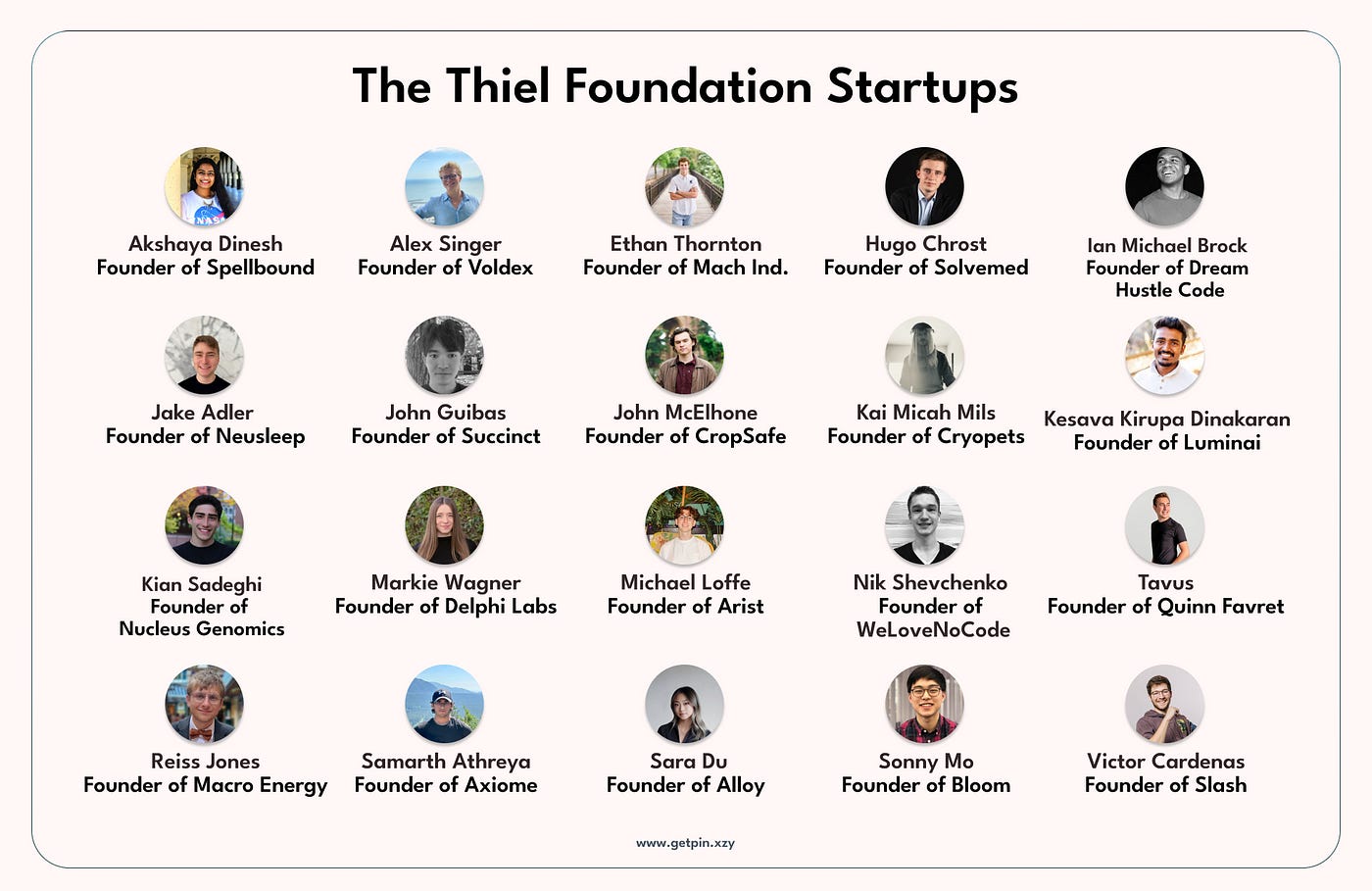
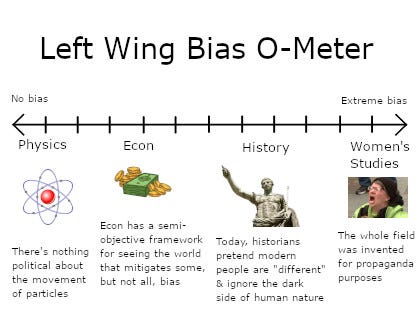
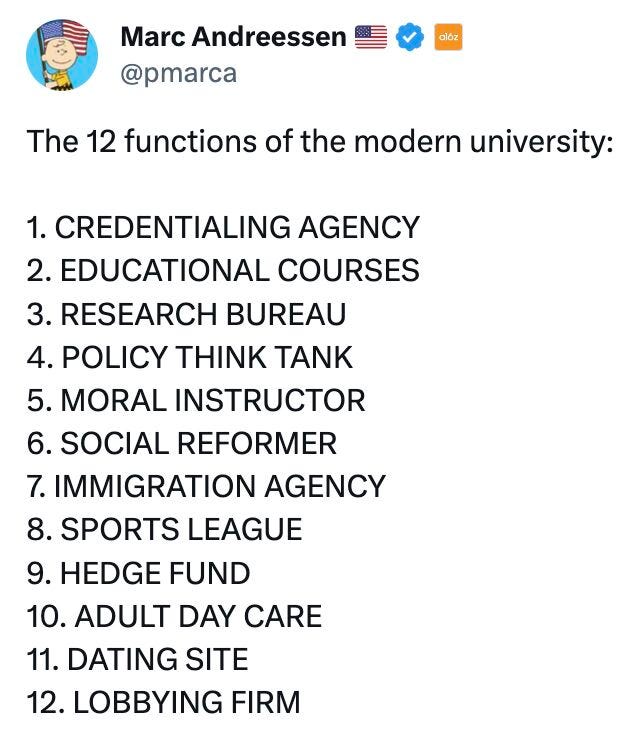
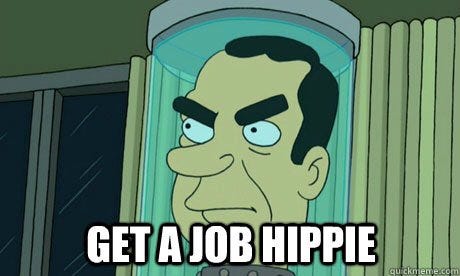

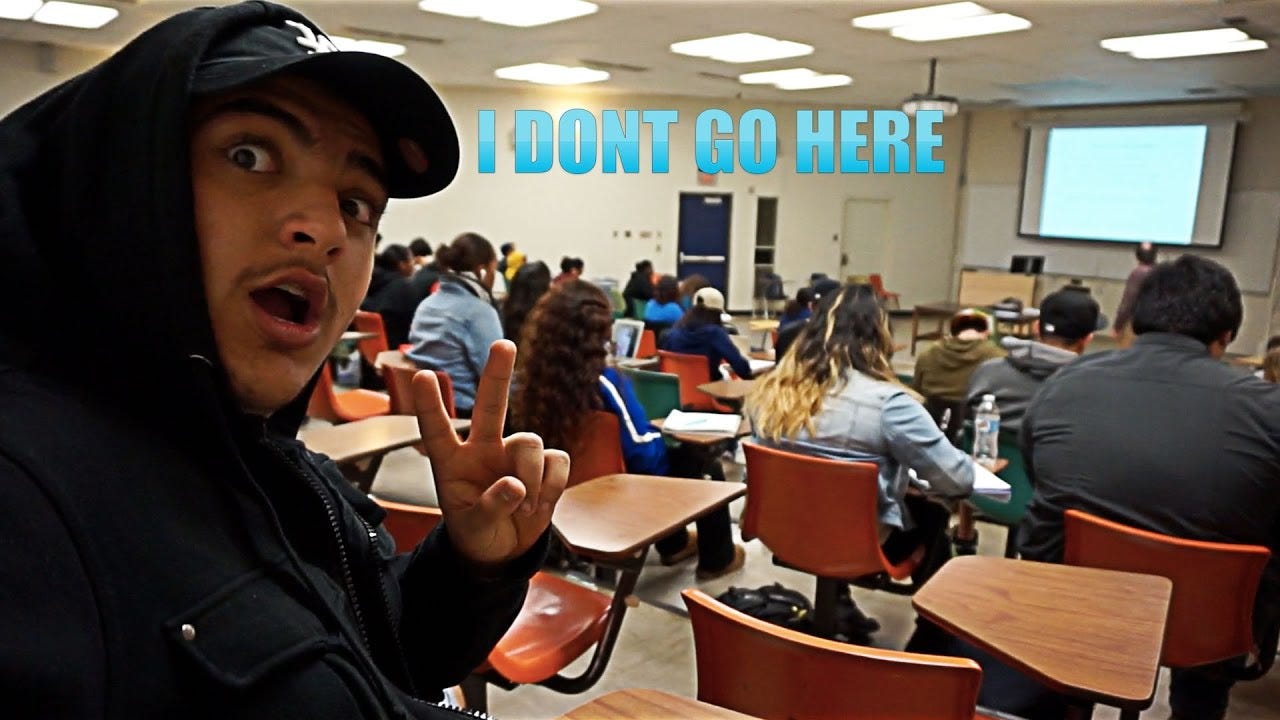


I'd take care of some of these points when I go there